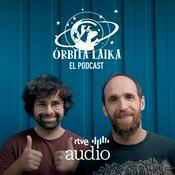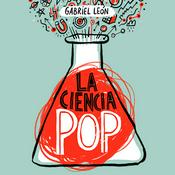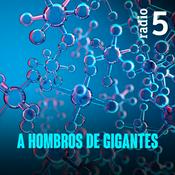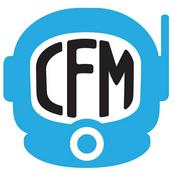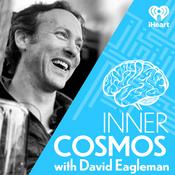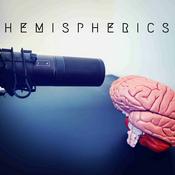129 episodios
- A key insight social anthropologist Mukulika Banerjee had while observing electoral behavior in a Bengali village was that -- at least in the India of that moment -- elections were sacred. This was not a religious epiphany but a cultural one; at the center was not a figure, religious or political, but an ideal - democracy.
Banerjee has explored her insights in the years since in a variety or formats, but academic and popular, ranging from her written work like 2021's Cultivating Democracy: Politics and citizenship in agrarian India or 2014's Why India Votes? to a 2009 radio documentary for the BBC specifically titled "Sacred Elections." In this Social Science Bites podcast, the professor at the London School of Economics reviews much of the underlying scholarship behind those works, then explores with host David Edmonds the de-sanctification of democracy in both India and the Global North in the years since.
"I think what has happened ... in the US and in the UK," she explains, "is a complacency that regardless of whether you do your little bit, whether it is literally just turning up to vote or learning to organize and be informed politically, is going to happen regardless of whether you do it or not. And because of this complacency, is precisely why these degenerations of democracy have happened."
Banerjee is the founding series editor of Routledge's Exploring the Political in South Asia and is also working on a grant from the Indo-European Networking Programme in the Social Sciences on Explanations of Electoral Change in Urban and Rural India. This year, courtesy of a British Academy-Leverhulme Senior Fellowship, she is on a research sabbatical studying the nexus of democracy and taxation. - In 2016 psychologist Paul Bloom wrote a book titled Against Empathy: The Case for Rational Compassion (a naming decision he still wrestles with). In the book, as in his career and in this Social Science Bites podcast, Bloom deconstructs what is popularly meant by empathy. "Everybody seems to have their own notion," he tells interviewer David Edmonds, "and that's totally fine, but we end up talking past each other unless we're clear about it." And so he outlines several widely used definitions -- think compassion, for example -- before offering several more scholarly ways of viewing empathy, such as "cognitive empathy" and "emotional empathy."
A key to understanding his work is that Bloom is not actually against empathy, at least not in general, even though he tells Edmonds, "I think empathy is -- in some way -- a great cause for our worst behavior." But the use of what he terms "emotional empathy" concerns him because, as he explains, it's not evenly distributed or applied, and thus allows harm to occur under the guise of benevolence. "Empathy is sort of vulnerable to all the biases you would think about. This includes the traditional in-group, out-group biases -- race, nationality, religion. It includes attractiveness -- it's easier to feel empathic for somebody who's cute versus someone who's ugly."
Bloom and Edmonds also discuss how empathy leaches into the realm of artificial intelligence, where what might be judged empathetic responses from AIs can devolve into a humanity-extracting feedback loop.
In his work as a professor of psychology at the University of Toronto, and as the Brooks and Suzanne Ragen Professor Emeritus of Psychology at Yale University, Bloom studies how children and adults make sense of the world, with, as his website notes, "special focus on pleasure, morality, religion, fiction, and art." He is editor of the journal Behavioral and Brain Sciences, and has written a number of public-facing books, including 2016's Against Empathy, Psych: The Story of the Human Mind, and The Sweet Spot: The Pleasures of Suffering and the Search for Meaning. - What does your accent – and yes, every speaker has one – say about you? Or perhaps the better question is, what do others hear in your accent? These are the sorts of questions that Devyani Sharma, a professor of language and communication at Oxford's Worcester College, asks every day, especially about the many English speakers around the world.
In this Social Science Bites podcast, Sharma takes a deep dive into the accents of Britain, where accents have famously been used as markers of social status for years. As she tells interviewer David Edmonds, "the UK stands out as a country that's organized its whole social system around accent for a very long time."
While that's been true historically, Sharma's own research and public service – through projects like Generations of London English, Dialect Development and Style in a Diasporic Community, and the Accent Bias Britain online resource – has helped reduce the negatives around that.
As she details for Edmonds, "Interestingly, just a reminder that 'you might be relying on accent as a shortcut and please don't' was enough to change recruiters' behavior. It doesn't always happen with gender and race anymore, and my sense is that's because the message has been saturated. People are annoyed to be reminded before doing a recruiting task, but they haven't thought as much about how much they use accent when judging people." - As a practical matter, how much effort do you put into pinning down the causes behind daily occurrences? To developmental psychologist Frank Keil, who studies causal thinking, that answer is likely along the lines of 'not enough.' A lack of causal thinking is both endemic, and, to an extent, hurtful these days, he argues, suggesting that lacking even simplified causal models makes things like the black box of artificial intelligence a potential problem.
In this Social Science Bites podcast, Keil, the Charles C. and Dorathea S. Dilley Professor of Psychology and Linguistics at Yale University, outlines for interviewer David Edmonds how causal thinking is a skill we seem to have at an early age, but which diminishes as we grow up. "[K]ids, by the time they approach elementary school, are asking up to 200 'why' and 'how' questions a day," he explains. "Within a year or two up to starting school, they're down to two or three, often none."
Furthermore, Keil sees this diminishment continuing in society today – and this comes as a cost. "I think it's making kids today be pushed more towards surface understanding, being user interface understanders. I think it makes influences more influential. To just say 'This is cool' as opposed to 'This is how it works.' One of the negative consequences is that we can get fooled by misinformation more; one of the best ways to debunk an expert is to ask them to explain the mechanism."
At Yale, Keil directs the Cognition and Development lab. He has written several books, from academe-oriented books like Developmental Psychology: The Growth of Mind and Behavior, to more general reader titles like Wonder: Childhood and the Lifelong Love of Science. His awards include the Boyd R. McCandless Award from the American Psychological Association (Developmental Psychology), the Distinguished Scientific Award for an Early Career Contribution to Psychology from the American Psychological Association, a Guggenheim Fellowship, a fellowship at the Center for Advanced Study in the Behavioral Sciences at Stanford University, a MERIT Award from the National Institutes of Health, and the Ann L. Brown Award for Excellence in Developmental Research. - Having been raised in Los Angeles, a place with vast swathes of single-family homes connected by freeways, arriving in Costa Rica was an eye opener for the young cultural anthropologist Setha Low. "I thought it was so cool that everybody was there together," she tells interview David Edmonds in this Social Science Bites podcast. "… Everybody was talking. Everybody knew their place. It was like a complete little world, a microcosm of Costa Rican society, and I hadn't seen anything like that in suburban Los Angeles."
That epiphany set Low, now a distinguished professor at the Graduate Center of the City University of New York, onto a journey filled with the exploration of public spaces and a desire to explain them to the rest of the world. This trek has resulted in more than a hundred scholarly articles and a number of books, most recently Why Public Space Matters but including 2006's Politics of Public Space with Neil Smith; 2005's Rethinking Urban Parks: Public Space and Cultural Diversity with S. Scheld and D. Taplin; 2004's Behind the Gates: Life, Security and the Pursuit of Happiness in Fortress America; 2003's The Anthropology of Space and Place: Locating Culture with D. Lawrence-Zuniga; and 2000's On the Plaza: The Politics of Public Space and Culture.
Low is also director of the Graduate Center's Public Space Research Group, and has received a Getty Fellowship, a fellow in the Center for Place, Culture and Politics, a fellowship from the National Endowment for the Humanities, a Fulbright Senior Fellowship, and a Guggenheim for her ethnographic research on public space in Latin America and the United States.
She was president of the American Anthropological Association (from 2007 to 2009) and has worked on public space research in projects for the Center for Advanced Study in the Behavioral Sciences at Stanford and was cochair of the Max Planck Institute for Religious and Ethnic Diversity's Public Space and Diversity Network.
Más podcasts de Ciencias
Podcasts a la moda de Ciencias
Acerca de Social Science Bites
Bite-sized interviews with top social scientists
Sitio web del podcastEscucha Social Science Bites, Órbita Laika. El podcast y muchos más podcasts de todo el mundo con la aplicación de radio.net
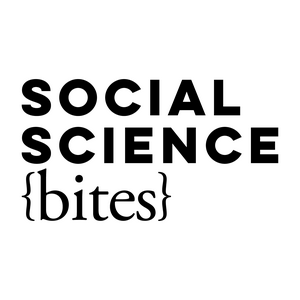
Descarga la app gratuita: radio.net
- Añadir radios y podcasts a favoritos
- Transmisión por Wi-Fi y Bluetooth
- Carplay & Android Auto compatible
- Muchas otras funciones de la app
Descarga la app gratuita: radio.net
- Añadir radios y podcasts a favoritos
- Transmisión por Wi-Fi y Bluetooth
- Carplay & Android Auto compatible
- Muchas otras funciones de la app


Social Science Bites
Escanea el código,
Descarga la app,
Escucha.
Descarga la app,
Escucha.

